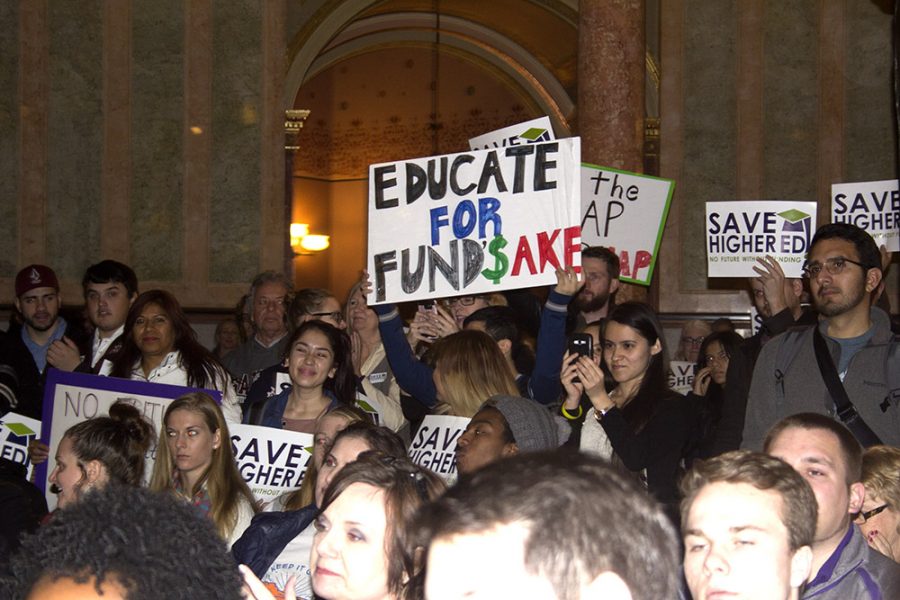Higher education supporters hold rally in Springfield
Protesters rally for full funding for higher education in Illinois at the State Capitol in Springfield on wednesday.
February 9, 2017
SPRINGFIELD, Ill. – Supporters for higher education across the state made the journey to Springfield Wednesday, despite a blizzard, to rally for higher education and Monetary Award Program Grant funding.
Led by the The Illinois Coalition to Invest in Higher Education, the rally served as part of a sustained effort to let the governor and legislators know that supporters for higher education are not going away, David Tretter, the president of the Federation of Independent Illinois Colleges and Universities, said.
The coalition is an umbrella group for colleges, universities and their supporters.
Tretter, who introduced many of the speakers, called the budget situation shameful.
“We’re doing real damage to the state, taking away opportunities for Illinois residents to be able to go to college,” he said. “And we’re picking on the poorest students of all who receive the MAP grant, so we know that if those students don’t get their MAP grants they essentially don’t go to college.”
Signs with statements such as “Higher Education is the Future,” and “Fund Education for Fund’s Sake” hovered over the crowd, held up by students who chanted and cheered along with the many speakers.
These students included William Riley, a junior aviation administration and public policy major from Lewis University, who said if he does not get his MAP grant funding for this year, it would be a struggle to return to his university.
“If you don’t invest in your education in your state, then your state is doomed to fail,” Riley said. “Education, that’s your pathway through life. If you don’t have a quality education how are you going to be prepared for the jobs of the future.”
Riley drove down to Springfield with other peers from his university and said he is not just rallying for MAP grants, rather, for an entire budget and said he wants to let his legislator know that.
“My question to the legislators is this: What’s the game plan?” Tretter said. “We talk about wanting to build the economy, bring in businesses, and if you devastate the higher education system, you can almost guarantee that’s never going to happen.”
Tretter said the budget impasse affects many different people in every district and feels it is the job of the coalition to make the case and represent all those who could not make the trip.
“800,000 students across the state trying to find their way to get their education, and isn’t it a little ironic that most of these legislators have not only one college degree, but some of them have master’s degrees?” Tretter said. “We want to give these Illinois residents the same opportunity that most of these legislators had. Someone helped them go to college…and we’re taking all those opportunities away from the people they’re supposed to represent.”
The crowd greeted the representatives and leaders in higher education such as Western Illinois University President Jack Thomas, who spoke on behalf of higher education.
Thomas said higher education is “a driver of personal and economic prosperity” and asked the crowd to demand the funding they deserved.
After the speakers finished, the crowd dispersed throughout the Capitol Building in search of their legislators to encourage them to support a bill for higher education and a budget.
However, a bill package called “The Grand Bargain” that was intended to put an end to the budget stalemate failed to pass in the Senate.
“The Grand Bargain” is a package of 12 interdependent bills negotiated by Democratic Senate President John Cullerton and Republican Leader Christine Radogno.
State Sen. Pat McGuire, D-Joliet said under the budget part of the package, there is a supplemental appropriation for the current fiscal year, getting $6 billion out the door with $1.1 billion for higher education.
“Right now there’s no funding for MAP grants for this fiscal year and (the package) would fund MAP grants for last semester and the current semester,” McGuire said.
Eastern would get $11 million that would pay for MAP grants.
“That means the state can begin to invest in you and higher education in the state of Illinois,” he said speaking to a crowd that filled the first floor of the Rotunda.
The Rotunda roared with cheers from the crowd, chanting, “Pass the Grand Bargain,” at the top of their lungs.
McGuire told the crowd that to pass the grand bargain, they would need the support of Gov. Bruce Rauner and Illinois Senate.
According to the Associated Press ,the Senate approved three of the four measures majority Democrats called Wednesday but they were approved with no Republican support. Another part to the package, a major overhaul to the state’s pension system, failed as well.
Each bill needed to be voted on by the Senate for the whole package to pass. Several speakers took the stand and shared their hopes and support for higher education before sending the audience to search for their legislator.
Mike DeBow, a freshman public policy major from Lewis University, said investing in higher education is important because it is time to get jobs back in Illinois as many students decide to leave the state for school.
DeBow, who is a freshman senator in his student government, said funding the MAP grants is how the state can get students back in Illinois.
“Protest, rally about everything you want and that’s how you get things done because public opinion can sway legislators,” DeBow said. “Money isn’t everything.”
Olivia Swenson-Hultz contributed to this article.
Analicia Haynes can be reached at 581-2812 or achaynes@eiu.edu.

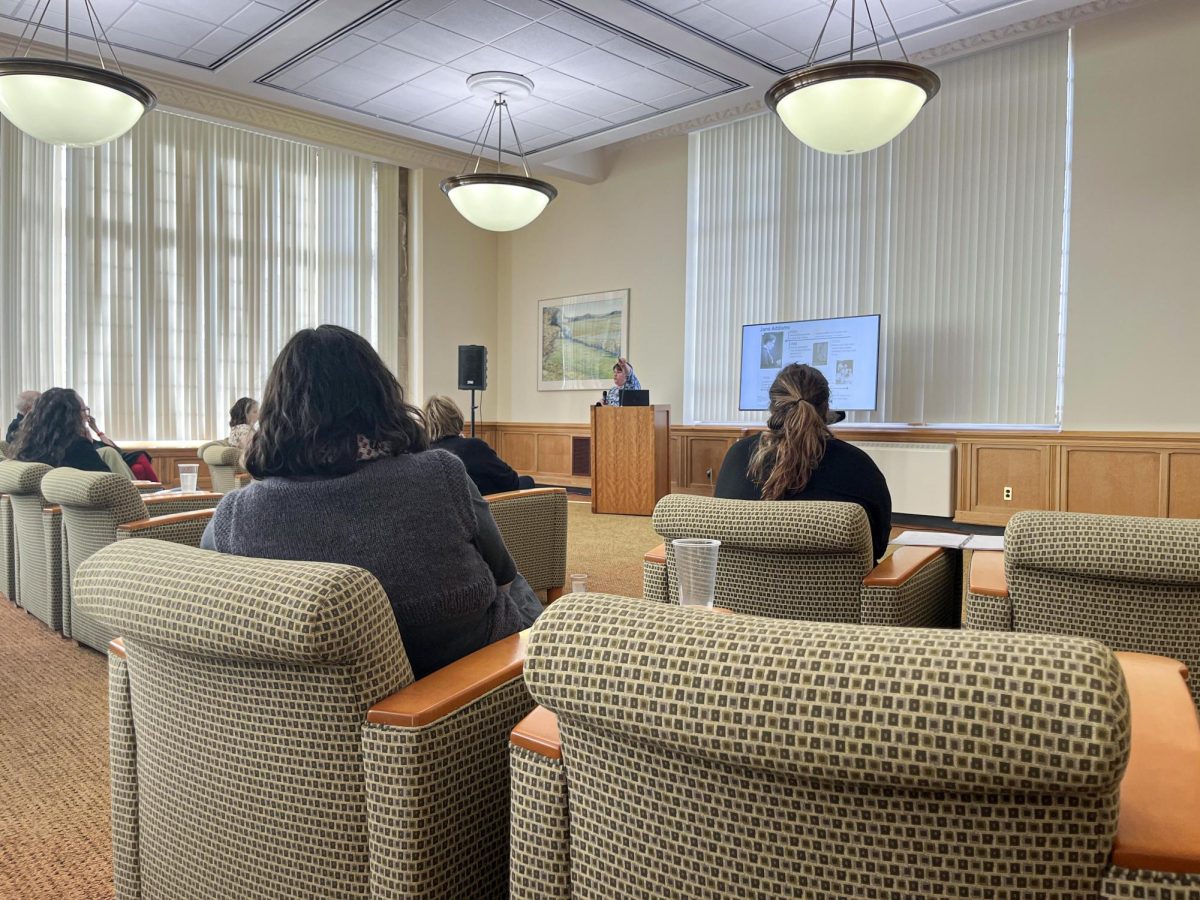


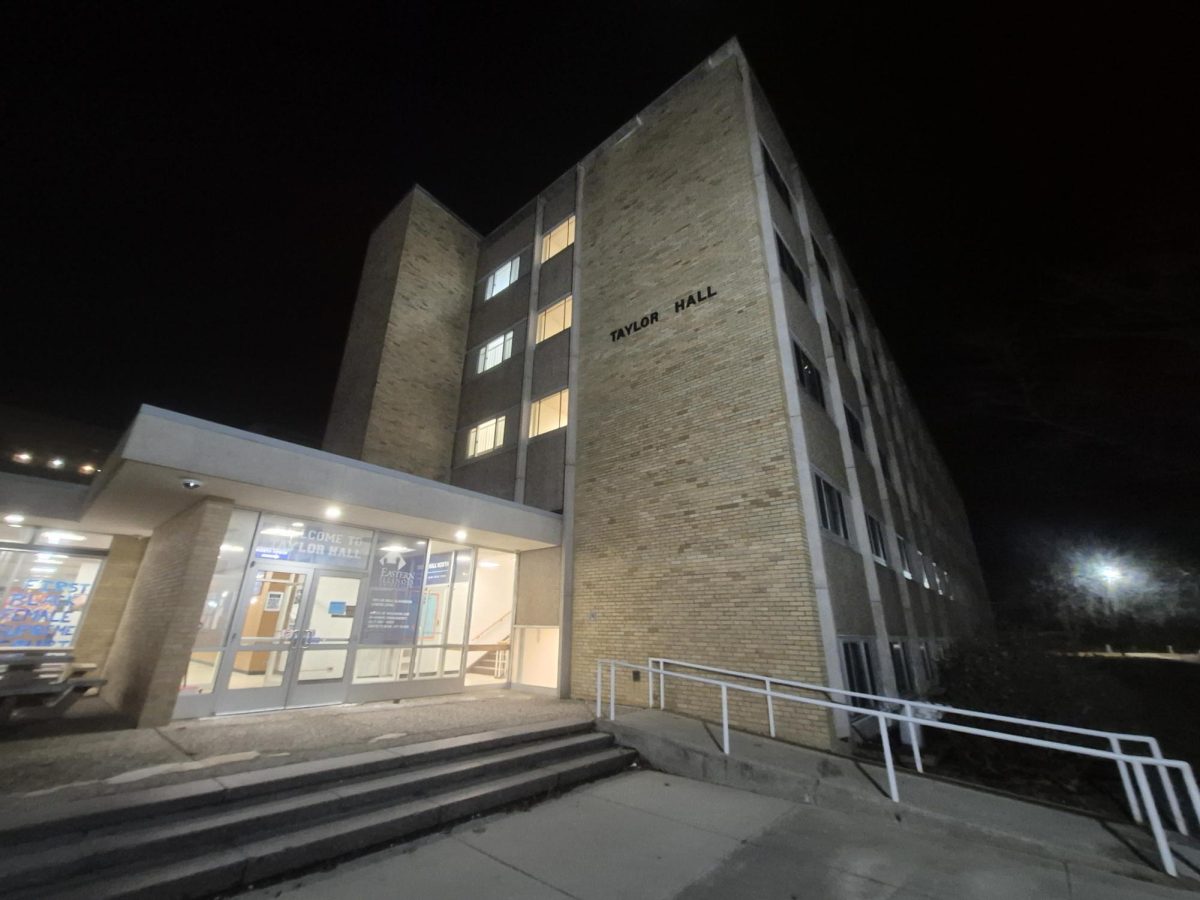
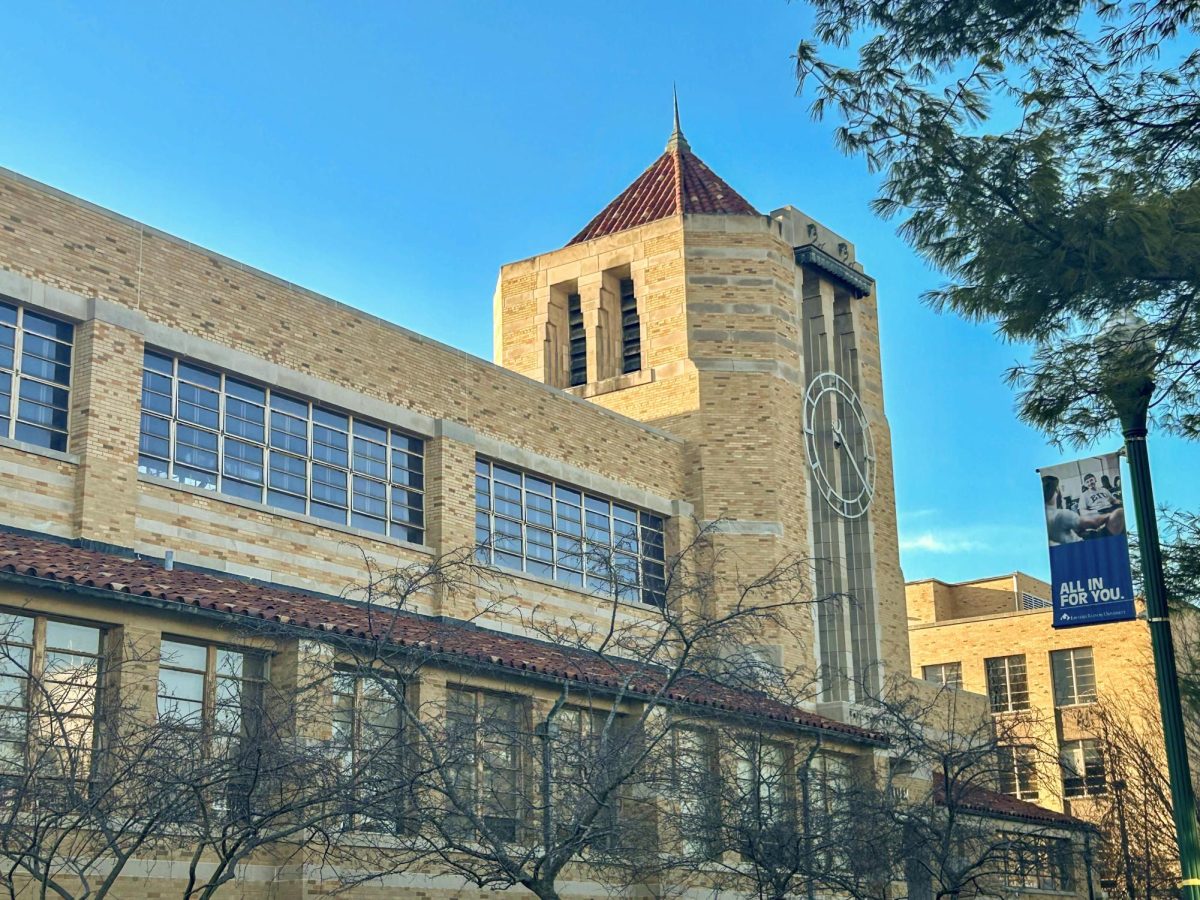
![[Thumbnail Edition] Eastern Illinois University baseball's hitting coach and recruiting coordinator Mike Pugliese urges players on the team to increase their effort after a slow start to its pregame routine at the team's first intrasquad scrimmage of the season at O'Brien Field on Jan. 31, 2025.](https://www.dailyeasternnews.com/wp-content/uploads/2025/03/BB_02_O-1-e1741909628540-1200x702.jpg)
![[Thumbnail Edition] Senior tennis player Luisa Renovales Salazar hits the tennis ball with her racket at the Darling Courts at the Eastern Illinois University campus in Charleston, ILL.](https://www.dailyeasternnews.com/wp-content/uploads/2025/03/Tennis_01_O-1-e1741807434552-1200x670.jpg)

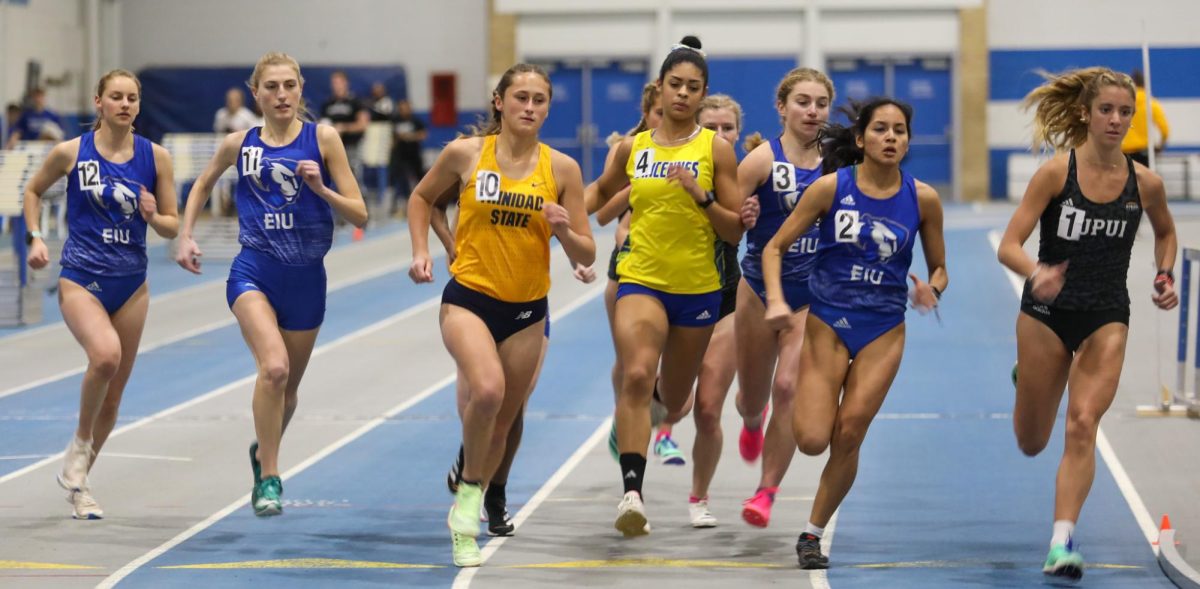
![[Thumbnail Edition] Senior right-handed pitcher Tyler Conklin pitching in the Eastern Illinois University baseball team's intrasquad scrimmage at O'Brien Field in Charleston, Illinois on Jan. 31.](https://www.dailyeasternnews.com/wp-content/uploads/2025/03/TC_01_O-e1741567955534-1200x669.jpg)

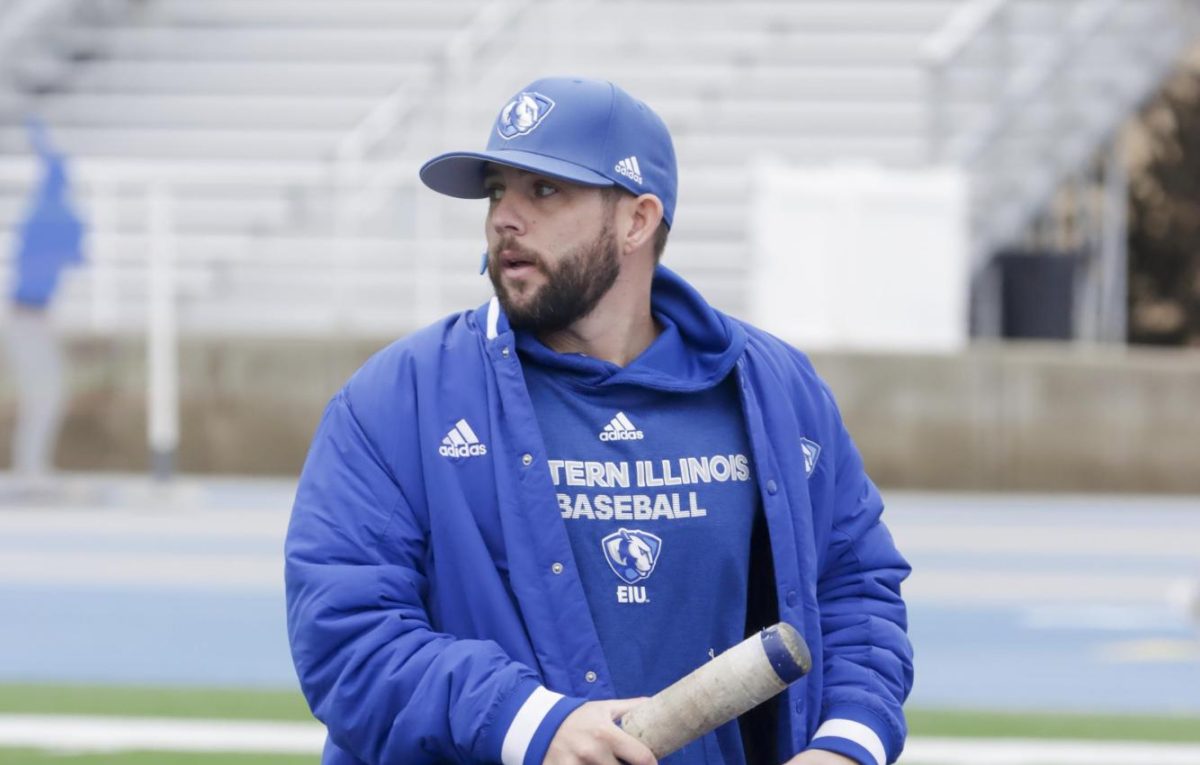
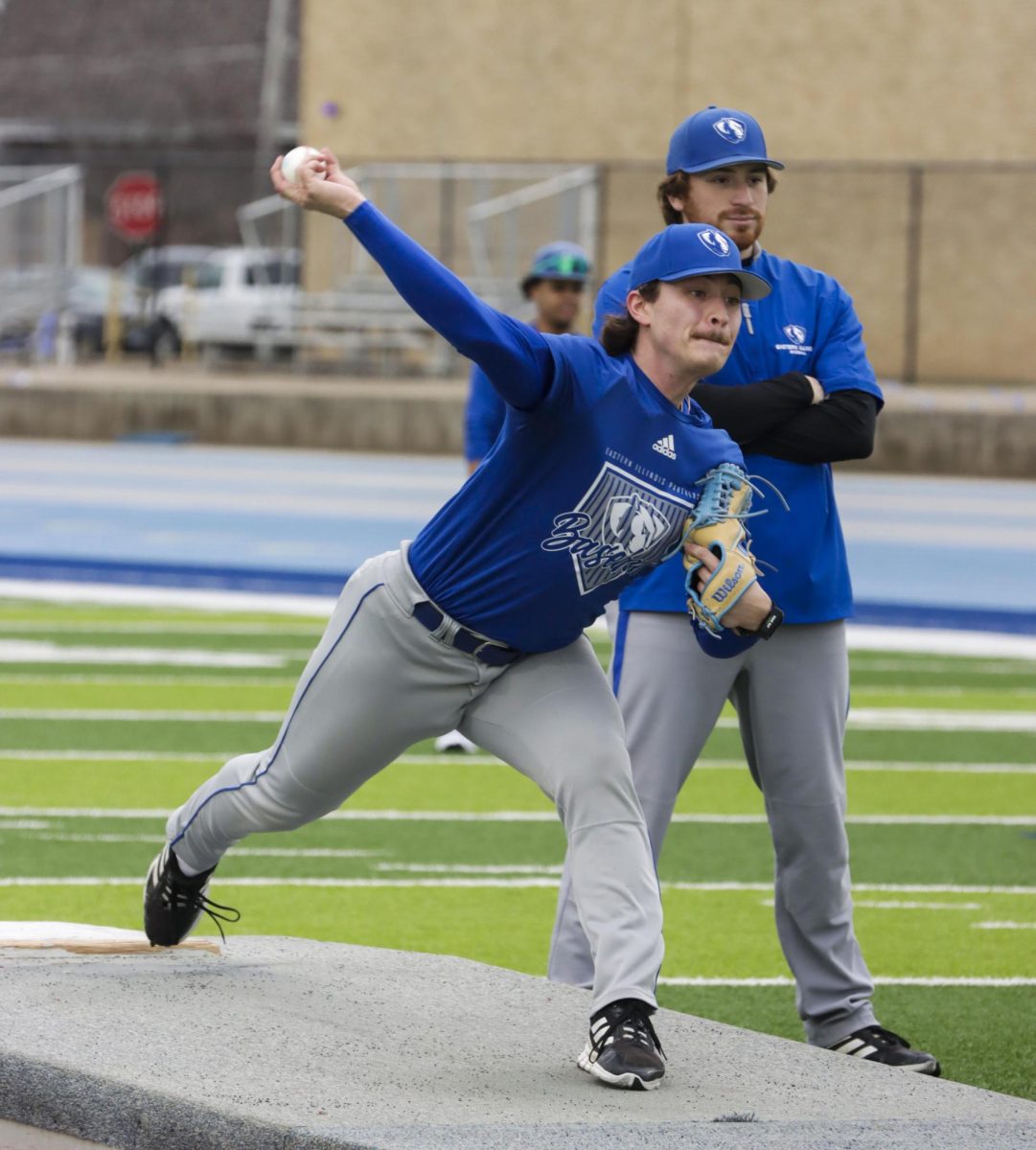


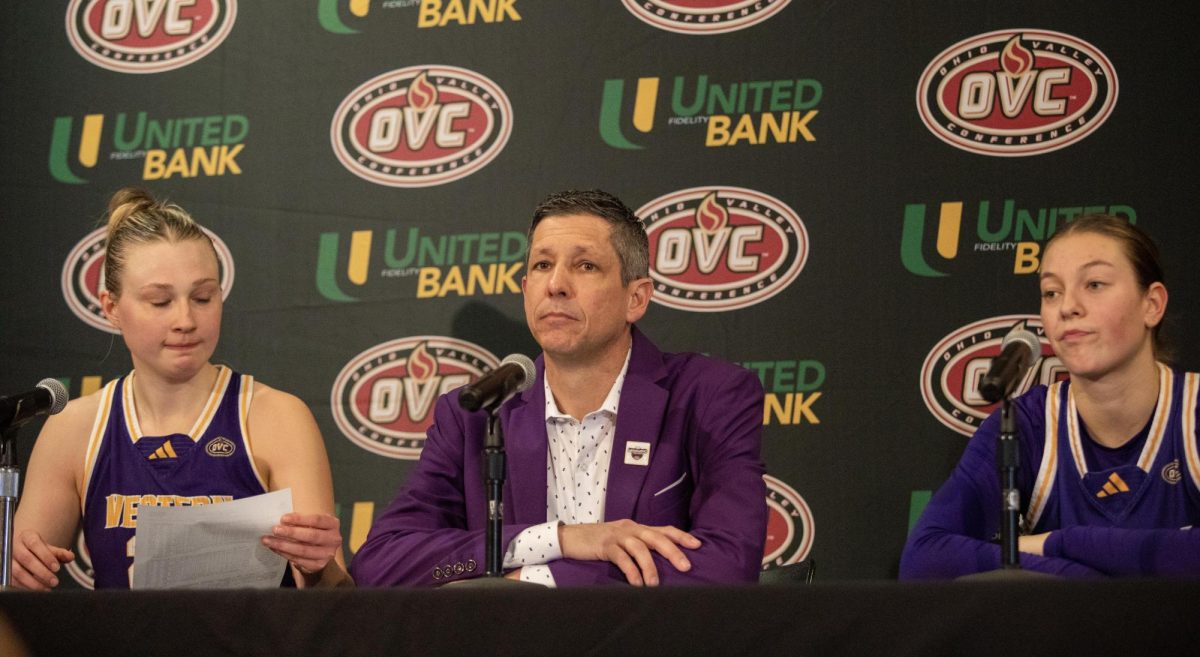
![[Thumbnail Edition] Senior, forward Macy McGlone finds an open teammate to pass the ball too during the game against the Tennessee State Tigers 69-49, in Groniger Arena on the Eastern Illinois University campus, Charleston Ill.](https://www.dailyeasternnews.com/wp-content/uploads/2025/03/WBB_02_O-1-e1741228987440-1200x692.jpg)


















![E[Thumbnail Edition] Eastern Illinois softball freshman utility player Abbi Hatton deciding to throw the softball to home plate in a fielding drill during softball practice at the field house in Groniger arena on Tuesday Feb. 11.](https://www.dailyeasternnews.com/wp-content/uploads/2025/03/SB_03_O-e1741208880750-1-e1741209739187-1200x815.jpg)

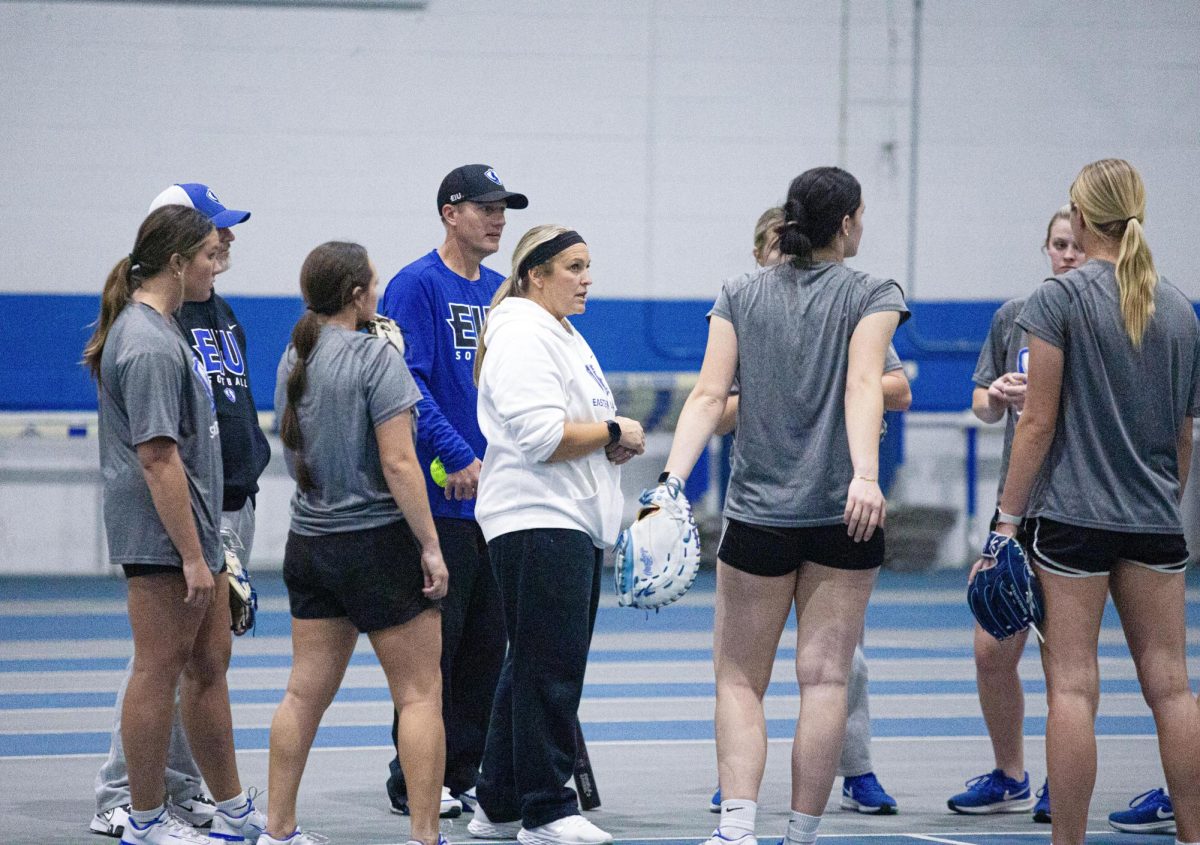
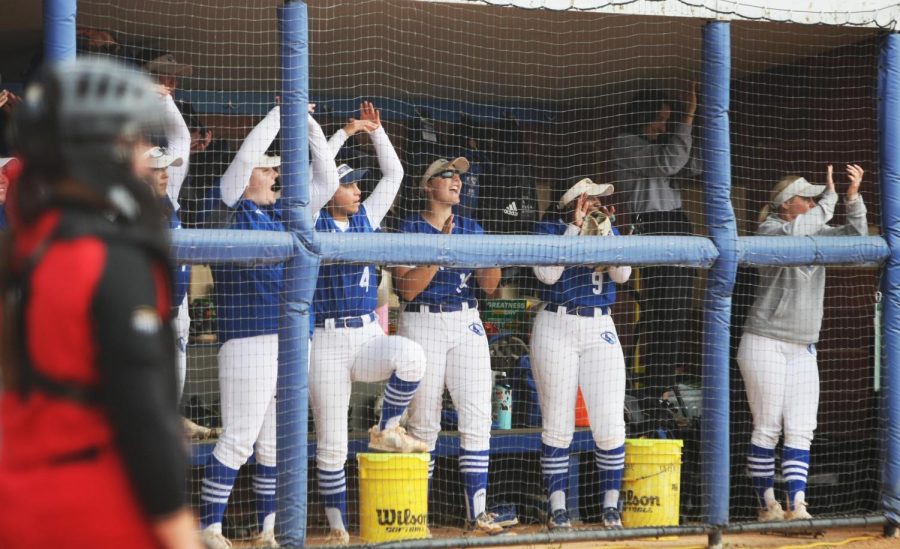













![The Weeklings lead guitarist John Merjave [Left] and guitarist Bob Burger [Right] perform "I Am the Walrus" at The Weeklings Beatles Bash concert in the Dvorak Concert Hall on Saturday.](https://www.dailyeasternnews.com/wp-content/uploads/2025/03/WL_01_O-1200x900.jpg)
![The team listens as its captain Patience Cox [Number 25] lectures to them about what's appropriate to talk about through practice during "The Wolves" on Thursday, March 6, in the Black Box Theatre in the Doudna Fine Arts Center in Charleston, Ill.](https://www.dailyeasternnews.com/wp-content/uploads/2025/03/WolvesPre-12-1200x800.jpg)
















